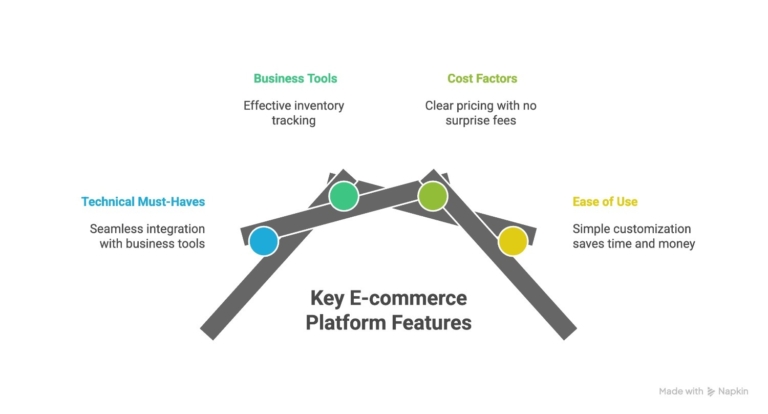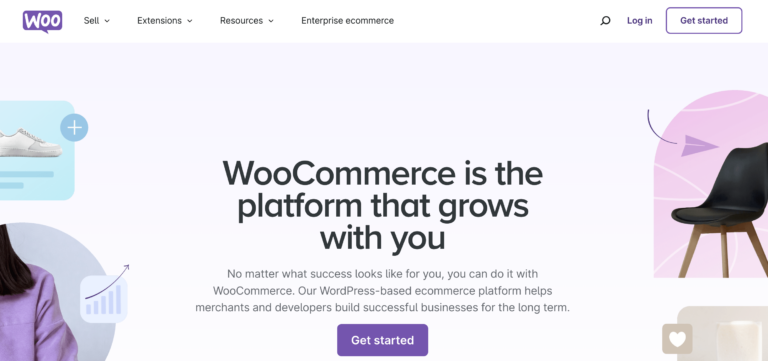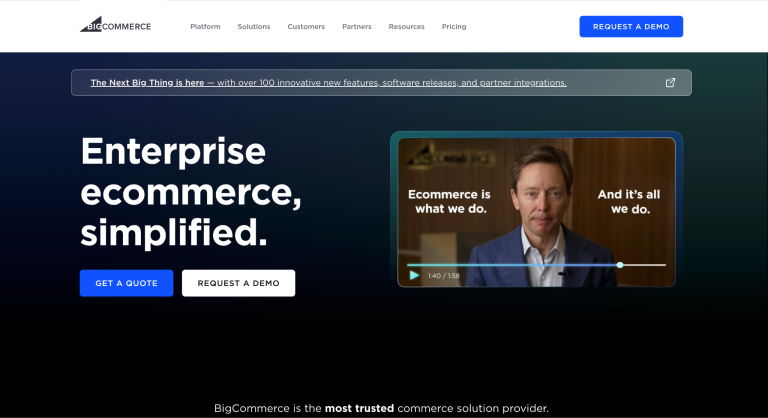Greetings! I'm Aneesh Sreedharan, CEO of 2Hats Logic Solutions. At 2Hats Logic Solutions, we are dedicated to providing technical expertise and resolving your concerns in the world of technology. Our blog page serves as a resource where we share insights and experiences, offering valuable perspectives on your queries.

Quick Summary
Shopify isn’t your only option for building an online store. This guide compares 5 better alternatives in 2025: Shopware, WooCommerce, BigCommerce , Magento, and Wix. Each platform offers unique benefits like lower costs, more customization, or better features. Find the perfect fit for your business needs and budget.
Shopify is popular, but it’s not the only option for building your online store. Many business owners find that other Shopify alternatives better fit their needs and budget. Whether you’re looking for affordable Shopify competitors or free Shopify alternatives, plenty of options exist.
Why businesses consider Shopify alternatives:
- Rising costs: Monthly fees plus app costs add up quickly
- Design limits: Hard to make your store look unique
- Extra fees: Transaction costs eat into profits
- Growing pains: Some businesses need more features as they expand
The good news? There are excellent Shopify alternatives that cost less, offer more flexibility, or provide better features for your specific business type. From open-source eCommerce platforms to comprehensive eCommerce platforms for small businesses, you have many choices.
What to Look for in a Shopify Alternative
Before understanding about specific platforms, here’s what makes an e-commerce platform worth considering as a Shopify alternative in 2025. Whether you’re comparing the best eCommerce platforms or searching for affordable Shopify competitors, these factors matter most:
Essential Features to Look For
Before selecting the e-commerce platform get to know the essential features to look for in it.

Technical Must-Haves: Your platform should integrate easily with other business tools. It needs to work well on mobile devices and help your store show up in search engines. Secure payment processing and reliable performance are non-negotiable basics.
Business Tools: Look for inventory tracking that actually works. You’ll want support for multiple currencies and languages if you plan to grow. Various payment options keep customers happy. Marketing features and detailed sales reports help you make smart business decisions.
Cost Factors: The best platforms offer clear pricing with no surprise fees. Fair transaction costs matter, especially as you grow. The platform should remain affordable as your business expands while delivering good value for your money.
Ease of Use: Simple customization saves time and money. A good selection of helpful add-ons extends your store’s capabilities. Quality customer support and an active user community mean you won’t get stuck when problems arise.
Top 5 Shopify Alternatives in 2025
These Shopify alternatives each offer unique advantages for different business types and budgets. From open-source eCommerce platforms to hosted solutions, let’s explore what makes each platform special among the best eCommerce platforms available today.
1. Shopware

Shopware started in Germany back in 2000. Now it’s growing fast in America. This platform offers something different from the usual options.
What Makes Shopware 6 Special
Named a top e-commerce platform in 2024, Shopware now serves nearly 21,000 businesses worldwide. The company has won awards six years running as one of the fastest-growing tech firms.
| Shopware Key Benefits | Details |
|---|---|
| Pricing | Free version available, no hidden costs |
| Performance | Fast loading, works with other tools |
| Customization | Easy to modify without developers |
| Results | 53% better sales, 10% more revenue |
The platform lets you create landing pages without hiring developers. You can automate routine tasks. Many users see real improvements in their sales numbers.
Pricing Made Simple
| Plan | Price | Best For |
|---|---|---|
| Community | Free | Startups |
| Rise | €600/month | Growing business |
| Evolve | €1,200/month | Established stores |
| Beyond | €2,000/month | Large companies |
Shopware works well for mid-size businesses that want modern features without the high costs. Among affordable Shopify competitors, it stands out for offering enterprise-level capabilities at reasonable prices. The free Community Edition makes it one of the most attractive free Shopify alternatives for startups.
Find out how Shopware can help your business grow.
2. WooCommerce: The WordPress Champion

The Most Popular Choice Worldwide
WooCommerce powers over 28% of all online stores. It’s free to use. You only pay for hosting and extras you want. This open-source eCommerce platform leads the Shopify vs WooCommerce debate for good reasons.
Why Millions Choose WooCommerce
This platform gives you complete control. You can change anything. Your website belongs to you, not a hosting company. Among free Shopify alternatives, WooCommerce offers the most flexibility.
| WooCommerce Advantages | Why It Matters |
|---|---|
| Cost | Free platform, low hosting costs |
| Control | Change any part of your store |
| Plugins | Thousands of add-ons available |
| Ownership | You own your data and website |
What’s New in 2025
Customers can now see products virtually before buying. Security got better with fraud protection. The platform loads faster than before.
| Cost Breakdown | Price Range |
|---|---|
| Core Platform | Free |
| Hosting | $3-50/month |
| Themes | $50-200 one-time |
| Extensions | $0-300/year |
WooCommerce works best if you already use WordPress. Among all eCommerce platforms for small businesses, it’s perfect for businesses that want full control over their store and don’t mind handling some technical details. When considering Shopify vs WooCommerce, choose WooCommerce if budget and customization matter most.
3. BigCommerce: The High-Volume Specialist

Perfect for Busy Stores
BigCommerce handles lots of sales without slowing down. No transaction fees ever. The platform grows with your business.
Why High-Volume Sellers Choose BigCommerce
Many features come built-in. You need fewer add-ons. The platform handles traffic spikes automatically.
| BigCommerce Strengths | What You Get |
|---|---|
| No Transaction Fees | Keep more of your profits |
| Built-in Features | Less need for expensive apps |
| Multi-Store Management | Run several stores from one place |
| Global Ready | Multiple currencies and languages |
New Multi-Store Feature for 2025
You can now manage different brands from one dashboard. Share inventory between stores. Create promotions across all your shops.
| Plan Comparison | Price | Sales Limit |
|---|---|---|
| Standard | $39/month | Up to $50K/year |
| Plus | $105/month | Up to $180K/year |
| Pro | $399/month | Up to $400K/year |
| Enterprise | Custom | Unlimited |
BigCommerce suits businesses planning to scale quickly. Among affordable Shopify competitors, it’s ideal if you hate transaction fees and want built-in features instead of expensive add-ons. This platform ranks among the best eCommerce platforms for growing businesses.
4. Magento (Adobe Commerce)

For Large, Complex Businesses
Magento handles big companies with complex needs. It’s now part of Adobe. The platform offers unlimited customization options.
When Magento Makes Sense
Large enterprises choose Magento for its flexibility. You can customize everything. The platform handles both B2B and regular customers.
| Magento Capabilities | Enterprise Benefits |
|---|---|
| Customization | Change anything you want |
| AI Features | Smart product recommendations |
| Global Commerce | Multiple languages and currencies |
| B2B Tools | Special pricing, bulk orders |
Advanced Features for 2025
Machine learning suggests products to customers. Content changes based on shopping behavior. The platform predicts what customers want.
| Magento Versions | Cost | Best For |
|---|---|---|
| Open Source | Free | DIY approach |
| Adobe Commerce | $22K-125K/year | Large business |
| Hosting | $100-2K/month | Technical setup |
| Development | $50-200/hour | Custom work |
Magento requires technical expertise. It’s expensive but very powerful. Among Shopify alternatives, large companies with dedicated IT teams choose Magento when unlimited customization is essential.
5. Wix

Simple but Powerful
Wix started as a website builder. Now it’s a complete business platform. You can build a store in minutes.
Why Small Businesses Love Wix
Drag and drop to build your store. No coding needed. Over 500 professional templates available.
| Wix Advantages | What It Means |
|---|---|
| Easy Setup | Store ready in hours, not weeks |
| AI Builder | Creates your site automatically |
| All-in-One | Website, store, booking, email marketing |
| Mobile First | Looks great on phones |
Smart Features for 2025
AI creates your website based on your business type. The system suggests design improvements. SEO happens automatically.
| Wix Plans | Price | Features |
|---|---|---|
| Business Basic | $17/month | Essential e-commerce |
| Business Unlimited | $25/month | More storage, no ads |
| Business VIP | $35/month | Priority support |
| Enterprise | Custom | Large business features |
Wix works best for small businesses and creative professionals. Among eCommerce platforms for small businesses, it’s perfect if you want simplicity over complexity and need your store running quickly. While not free, it’s still one of the more affordable Shopify competitors for beginners.
Detailed Comparison Table
For a quick understanding take a look at the comparison table of e-commerce platforms instead of Shopify.
| Feature | Shopware | WooCommerce | BigCommerce | Magento | Wix |
|---|---|---|---|---|---|
| Starting Price | Free | Free | $39/month | Free | $17/month |
| Transaction Fees | 0% | 0% | 0% | 0% | 2.9% + 30¢ |
| Hosting | Optional | Required | Included | Required | Included |
| Customization | High | Very High | Medium | Very High | Medium |
| Scalability | Excellent | Good | Excellent | Excellent | Limited |
| Learning Curve | Medium | Medium | Easy | Steep | Easy |
| App Ecosystem | 3,000+ | 59,000+ | 1,000+ | 4,000+ | 500+ |
| Multi-language | ✅ | ✅ | ✅ | ✅ | ✅ |
| Mobile Responsive | ✅ | ✅ | ✅ | ✅ | ✅ |
| SEO Features | Excellent | Good | Good | Excellent | Good |
| Security | Enterprise | Good | Enterprise | Enterprise | Good |
| API Access | Full | Full | Full | Full | Limited |
| Headless Commerce | ✅ | ✅ | ✅ | ✅ | ❌ |
| Best For | Mid-Enterprise | All Sizes | Growing Business | Enterprise | Small Business |
Which Platform is Right for Your Business?
When comparing the best eCommerce platforms, consider your specific needs:
Shopware:
- You need a balance of features, cost, and scalability
- Your business is growing and needs room to expand
- You want modern technology without complexity
- Cost control is important to your business model
- You’re looking for one of the affordable Shopify competitors with enterprise features
WooCommerce:
- You already use WordPress or need content integration
- Maximum customization control is essential
- You have technical expertise or access to developers
- Budget is a primary concern and you want free Shopify alternatives
- You want complete ownership of your platform
- The Shopify vs WooCommerce comparison favors flexibility over ease
BigCommerce:
- You have high sales volumes or plan to scale quickly
- Built-in features are more important than customization
- You want enterprise features without complexity
- International expansion is part of your strategy
- You prefer not to manage hosting and technical details
Magento If:
- You’re a large enterprise with complex requirements
- Extensive customization is non-negotiable
- You have dedicated development resources
- B2B functionality is crucial
- Budget is less of a concern than capability
- You need the most powerful open-source eCommerce platform
Choose Wix If:
- Ease of use is your top priority
- You need a complete business solution beyond e-commerce
- Design and visual appeal are crucial
- You’re a small business or creative professional
- Technical complexity should be minimal
- You want one of the eCommerce platforms for small businesses that’s simple to use
Migration Considerations
Switching from Shopify to any of these alternatives doesn’t have to be complicated. The key is planning ahead with staging environments, complete backups, proper URL redirects, and staff training to minimize downtime and preserve your search rankings. We provide complete e-commerce migration support to help you switch platforms safely, ensuring your data transfers correctly and your store stays online throughout the process. With proper planning and professional help, you can move to a better platform without losing customers or sales.
Conclusion
The e-commerce landscape in 2025 offers many excellent Shopify alternatives. Each platform brings unique strengths that may better serve your specific business needs. From free Shopify alternatives to premium solutions, the best eCommerce platforms cater to different requirements and budgets.
When exploring the best eCommerce platforms available today, remember that the right choice is the one that grows with your business while providing the tools, flexibility, and support you need to succeed in an increasingly competitive digital marketplace.
Ready to explore your options? Consider getting a free consultation with e-commerce experts to bring the best benefits for your business.

Related Articles







